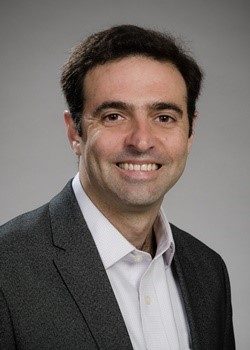Mauricio Dorfman, PhD
Email: dorfmanm@uw.edu
- Research Assistant Professor of Medicine, Division of Metabolism, Endocrinology and Nutrition
- Home Department Website: https://endocrinology.uw.edu/
Dr. Dorfman obtained a B.S. degree in Biochemistry and a Ph.D. in Pharmacology from University of Chile in 2001 and 2008, respectively. His early work in Dr. Hernan Lara’s laboratory focused on investigating the role of ovarian sympathetic nerve activity in the pathogenesis of polycystic ovary syndrome. He further pursued the study of ovarian pathophysiology as a postdoctoral fellow in Dr. Sergio Ojeda’s laboratory at the Oregon National Primate Research Center/ Oregon Health and Science University. Following his interest in the field of obesity and diabetes, Dr. Dorfman moved to Seattle in 2012 to complete his postdoctoral training under the mentorship of Drs. Michael W. Schwartz and Joshua P. Thaler at the University of Washington. He was appointed as a Research Assistant Professor in the Division of Metabolism, Endocrinology and Nutrition in 2016, where he is combining expertise obtained during both his Ph.D. and postdoctoral training to investigate novel research questions at the intersection of reproductive and metabolic science.
Research Interests
Recent work in the field of obesity and diabetes supports the concept that the brain plays an important role in regulating energy homeostasis and glucose control. Based on these early observations, first as a postdoctoral trainee with Dr. Michael W. Schwartz and Dr. Joshua P. Thaler as mentors and now as a Research Assistant Professor working closely with Dr. Thaler, Dr. Dorfman have focused on the role of hypothalamic cells (neurons, astrocytes and microglial cells), in the regulation of energy balance and glucose homeostasis. Dr. Dorfman has special interest in the identification of metabolically-relevant sexual dimorphisms in non-neuronal and neuronal cells to improve the management of gender-specific metabolic disease risk factors.
Dr. Dorfman has obtained several awards including a Scientist Development Award by the American Heart Association (AHA), two Pilot and Feasibility Awards (UW), and an institutional Royalty Research Fund. Recently, he was honored with the Early Investigator Award by the Endocrine Society.
How can this research help people with diabetes?
Dr. Dorfman’s research has the potential to find new central nervous system molecular targets for the treatment of obesity, a major health problem due to its high prevalence; contribution to the risk of metabolic and cardiovascular diseases, including diabetes mellitus type 2 and atherosclerosis; and its resistance to medical therapies.

